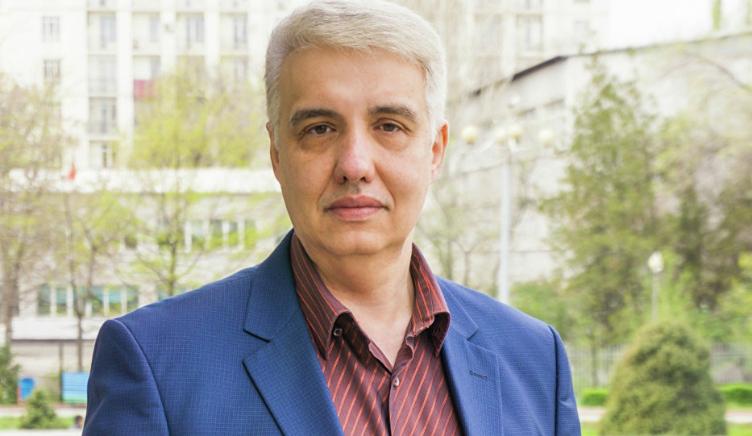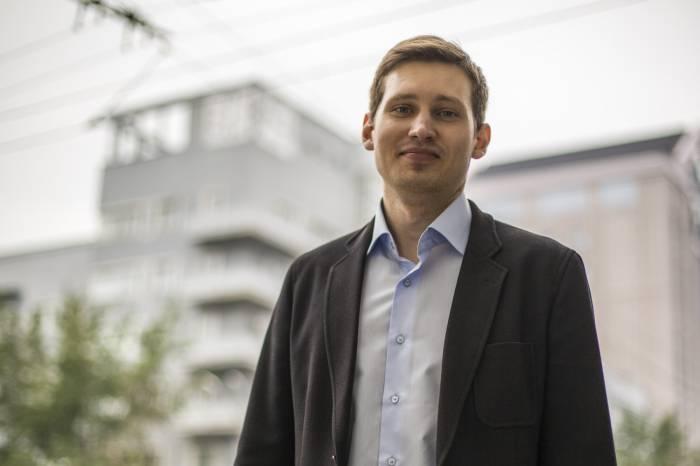“Armenia not withstand new war with Azerbaijan" Shestakov and Ryabtsov on Caliber.Az
Since Azerbaijan and Armenia could not be able to sign a peace treaty by the end of 2023, it is quite realistic to sign it at the very beginning of 2024. At least this is what analysts of the Russian Kommersant newspaper are sure of, citing, among other things, some insider information.
According to Kommersant's sources, the parties are still actively working on a peace treaty that could be signed "shortly after the New Year." According to the newspaper, by the end of the year, despite the constant backtracking and pauses in the negotiation process on the South Caucasus, before the CIS summit in St. Petersburg, Nikol Pashinyan and Ilham Aliyev were closer than ever to signing a peace treaty and putting an end to the 30-year conflict.
Caliber.Az editorial board asked experts to find out what they think about this.

A Kyrgyz political scientist, expert on CIS geopolitics, director of the Oi Ordo Center for Expert Initiatives Igor Shestakov notes that the topic of the peace treaty between Armenia and Azerbaijan was discussed throughout the year both in bilateral format and at the platforms of the European Union, Russia and the United States. At the same time, he recalled that the last meeting between Pashinyan and Aliyev "on the feet" took place the other day on the sidelines of the informal summit of CIS leaders in St. Petersburg, and, in his opinion, had a noticeable impact on Yerevan.
"In my opinion, analysts' forecasts regarding the signing of a peace treaty early next year are based in no small part on the fact that further escalation of Armenia's tensions with Azerbaijan could turn out to be a death sentence for Pashinyan. Because Armenia, in case of aggravation of relations, will simply not be able to withstand confrontation with Azerbaijan either economically or militarily. Many international experts talk about this, both in Armenia and Azerbaijan, this fact is clear and obvious," the expert believes.
In his opinion, the fact that Azerbaijan has regained full possession of Karabakh shows well the evolution of Armenia's political stagnation, which has shifted from an intransigent and ambitious position at the beginning of this year to a noticeably more loyal one by its outcome.
"After all, Armenia was also offering to sign a peace treaty between the countries, but with a number of conditions. And by the end of the year, Armenia leaned to those proposals put forward by Baku. And they consist in the fact that the peace treaty should first of all fix the territorial integrity of the two states, which in fact Baku has fixed in practice in the fall of this year," Shestakov said.
If we put aside all conspiracy and look at the facts, Azerbaijan has all the opportunities and resources to make the Karabakh region dynamically developing and successful, unlike Armenia, which for more than thirty years has only turned these lands and cities into wastelands and ownerless territories, Shestakov added.
"Armenia has not been able to improve, on the contrary, it has ruined Karabakh, because all these years it has been going through difficult economic times. And the current year was probably one of the most difficult for Yerevan in its relations with its key strategic partner, Russia. It was obvious that Moscow was finally disappointed in the political actions of Pashinyan, who was simply trying to sit on several chairs at once. For him now, this peace treaty is one of the opportunities to somehow save himself, so I think that Kommersant's analysts are proceeding from very true insider information that such an agreement is possible very soon.
Once again, given the difficult socio-economic situation in Armenia this year, I think that Pashinyan himself will take a more compromising position. Perhaps the fact that Armenia will preside over the EAEU next year will also play a role here, which will also put an imprint on Yerevan's foreign policy and bind Pashinyan to more rational decisions, simply because the confrontation between Yerevan and Baku does not suit almost all EAEU countries, including Kazakhstan, Kyrgyzstan and Belarus. These countries are just in favor of establishing the closest economic ties with Azerbaijan. So, I think the forecast of analysts from the Russian media is quite realistic, all the prerequisites for this are in place and the peace treaty will be signed taking into account all the requirements of Azerbaijan," Shestakov noted.

In his turn, Russian political analyst Alexander Ryabtsov noted that there is a feeling that Pashinyan, contrary to many expectations, who went to the summit in St. Petersburg, did not come to this decision spontaneously.
"There are other opinions of analysts who believe that Pashinyan was persuaded to come and discuss the upcoming peace treaty with President Aliyev by serious forces in the Kremlin. They managed to push Pashinyan and convince him that by the end of the year it is necessary to determine many things in the vector of foreign policy - both with relations with Moscow and in terms of signing a peace treaty with Baku. The time for wagging and games is over - Russia is also extremely interested in a peace treaty between Armenia and Azerbaijan. Moreover, not so much in political terms, but in economic terms and that is why it lobbied this issue," Ryabtsov added.








